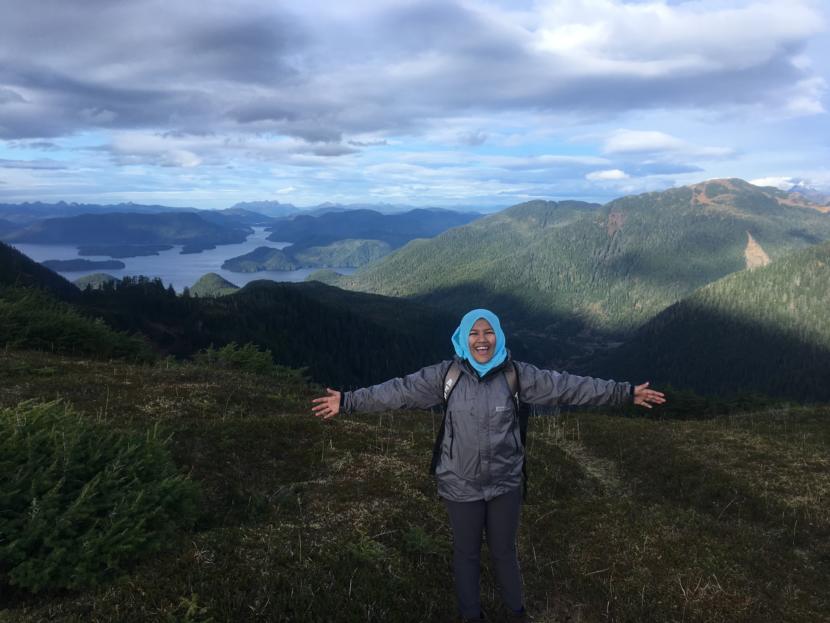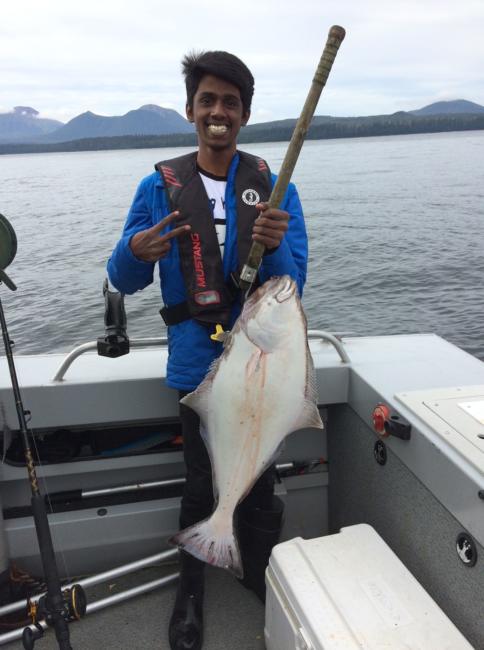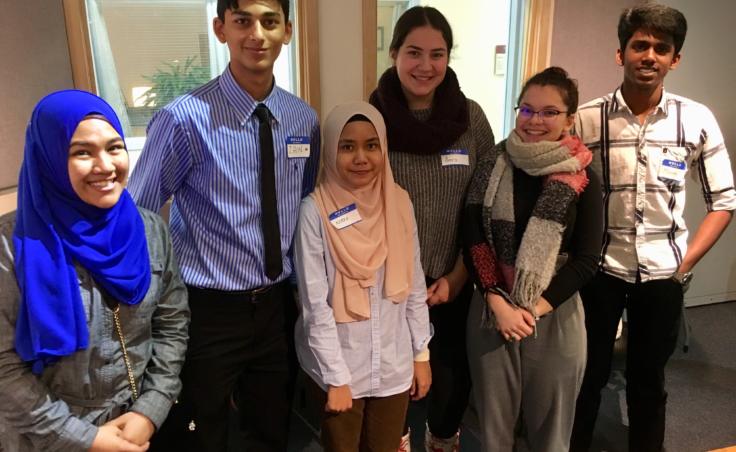
For the past eight years, families in Juneau and Sitka have opened their homes to high school students on exchange from countries with a significant Muslim population. Volunteers with the program say it’s more relevant than ever.
Zain Mufti was half-asleep, at home in Pakistan, when he looked at his phone. What he saw was an email telling him he would spend the next school year abroad — in Alaska.
“I thought it was a dream,” he said. “And the next morning I wake up, I look at my phone like, oh my god, I am going to Alaska. It was a very big shock.”
Mufti had been accepted to the Kennedy-Lugar Youth Exchange and Study (YES) Program, which brings students to the U.S. from countries with a large Muslim population. The students are matched with a host family and attend local schools for one year. Funded by the State Department, it works the other way too, sending American students abroad to dozens of countries in the Middle East, Africa, Asia and Eastern Europe.
This year, the program brought two students to Juneau and four more to Sitka, coordinated by AFS, a nonprofit that connects students to study abroad opportunities.
Krisanne Rice is a volunteer in Sitka with AFS. She said it was started in the wake of 9/11 as a way to build relationships on a personal level between the U.S. and Muslim countries.
“We have an opportunity to, through this exchange program, meet young people and learn directly firsthand from them what their faith is about, and what their lives and culture are about,” she said.
And the students get to learn firsthand what life is like here in Alaska.
Mohan Raj Arul is from Chennai, a city of 9 million on India’s eastern coast. Back home, temperatures dip into the 70s only in the coldest months. When interviewers asked Arul where he’d like to be placed, he suggested Florida.
But after a few weeks of wearing his coat at all times, indoors and out, Arul said he quickly took a liking to life in Sitka. He got used to everyone in town knowing his name, and he’s had plenty of firsts: first time seeing snow, first time skiing and camping.
He’s especially enjoyed going fishing with his host family. In India, he said, that’s a luxury for the rich.
On the boat, his host dad gave him a quick lesson.
“He taught me like twice, thrice I guess, and then after that I started, like, picking up fishes, and he was kind of jealous for the first time because I got the biggest size of the halibut, like, none of the family members got,” Arul said.

Rice said students in the program haven’t always had an easy time. She knows that over the years some have faced anti-Muslim insults. But she thinks the program is accomplishing its goal of building goodwill and understanding, even with a shifting political climate:
“In 2019 it’s more important than ever, based on our own political realities in our country and what we hear from our friends, neighbors and leaders,” Rice said.
This year’s students say they’ve been embraced by the communities. That’s not to say it hasn’t been challenging: They’re far from home, speaking a second language and pushing themselves out of their comfort zone everyday. And, of course, there’s the cold.
But Yulvie Nuri from Bulgaria said, “It’s the community spirit that keeps us warm.”
Her classmate at Sitka High School, Amra Kojic from Bosnia-Herzegovina, said she’s happy to be here.
“I think for me it’s the best decision that I’ve ever made in my life, because you meet so many people, you see so many things. You become more independent,” she said.
Kojic and the other students said they’ve learned a lot about themselves this year. Some have even discovered new interests.
Nisreen Jehka said back home in Thailand, art class meant learning from a book. That didn’t appeal much to her, but at Sitka High School she’s learned she loves to draw and paint.
Mufti already knew he liked theater when he arrived in Juneau, but he said he never thought he could sing.
“It turns out I can, and I’m in a play, so boom, I’m one of the leads,” he said, referring to his role in Juneau-Douglas High School: Yadaa.at Kalé’s recent production of “Bye Bye Birdie.”
More than halfway through the school year, Mufti said he’s trying to make the most of every moment.
“It’s only 10 months, and it goes like a snap like a finger,” he said.
Rice said right now the program is looking for families in Juneau and Sitka to host next year’s exchange students.
For more information, interested families in Juneau should contact Amelia Jenkins at 907-321-2694 or afsjuneau@outlook.com. In Sitka, call Julia Smith at 907-747-6333.


